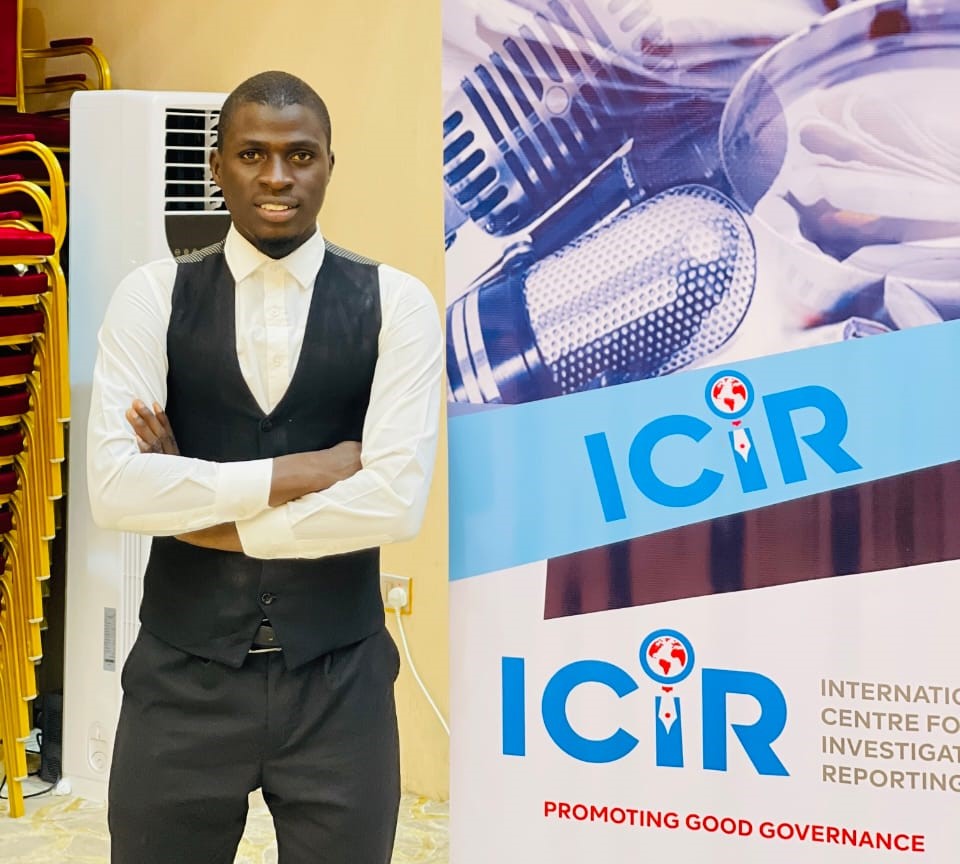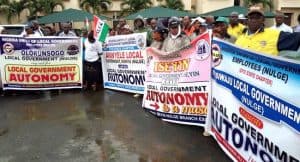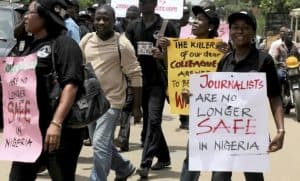
Journalism is both demanding and dangerous in Nigeria. The sour relationship between the media and authorities has battered the freedom of journalistic practices, making it challenging to be a consequential journalist in the country.
The Committee to Protect Journalists (CPJ) reported that more than ever before, 363 reporters were behind bars globally, as of December 1, 2022, with 56 journalists jailed in Africa alone.
Nigeria is at the centre of these press attacks.
Space for Change, a civic organisation, stated in a report that Nigeria is the focal point for most press-related issues in West Africa. Out of the 207 reported cases, the report said, Nigeria accounted for 122 cases of media attacks.
In March this year, Segun Olatunji, the Editor of First News and a former Kaduna Bureau Chief of The PUNCH, was abducted at his home in the Abule Egba area of Lagos State by the Defence Intelligence Agency. The journalist regained freedom after 13 days of illegal detention.
The Department of State Services (DSS) officials have also persistently harassed Lanre Arogudade, the executive director of the International Press Centre (IPC), continuously overlooking the power of the press as enshrined by the law.
Section 22 of the Nigerian constitution empowers the media to act as a critical watchdog, holding the government accountable and providing citizens with the information they need to make informed decisions.
Unfortunately in Nigeria, we know the truth — and have the power to uphold it — but who are we to expose it?
An Encounter With Enemies of the Press
I woke up happy one day in September 2022, knowing that my first investigative reporting would be published in a national newspaper. I uncovered how teenage students in the Government Secondary School, Kosubosu in Kwara state were being used as labourers on the private farms belonging to some teachers.
Curiously, I got an invitation from the school after the story found viral appeal on the internet. I saw anger and frustration written over the faces of the school teachers upon my arrival. In a round-table meeting, one of the teachers told me that the Kwara State Ministry of Education had been on their neck over the story.
They wanted me to bring it down.
“We know the truth but who are you to expose us?” one staff quipped.
When they observed during the meeting that I was not ready to take down the story, they threatened me with a lawsuit.
I laughed it off.
The man who organised the round-table discussion suddenly called a civil defence officer they had connived with to get me arrested. “When you get to the station, you will understand the gravity of the crime you’ve committed,” the officer said when he finally came to arrest me.
At the station, I was led into the office of one of their superior officers, who interrogated me for several hours. The spokesman of the school was already waiting for me at the station, telling the officers to handle me properly.
In the middle of the interrogation, one man who introduced himself as the head of the department of education for the Baruten local government appeared. He warned the school teachers and the officers about the danger of forcing me to take down the story. When the security officers realised the man would not take sides with them, he instructed me to go and wait outside.
After 40 minutes outside, I was asked to go home.
I was lucky.
Several journalists had been detained in Nigeria on account that they published stories some people wanted unpublished, leading to unlawful incarceration and harassment.
Lekan Otunfodurin, the Executive Director of Media Career Development Network, told me in a telephone interview that cases of harassment, abduction, and threats to journalists’ lives are worrisome in a democratic system.
He highlighted the danger of what the military had done recently on the abduction of Segun Olatunji, the Editor of First News, noting that other arms of government and non-state actors could take a clue from the incident and still do it.
“So, this is very worrisome. If we are in a democracy, we should know that we are in a democracy and those things that were done under the military era should not persist,” he warned. “Nobody should assume that he can take the laws into their hands. We must know that the media is supposed to be free. We have constitutional rights guaranteed under the Constitution. So, we should know what the law says.”






